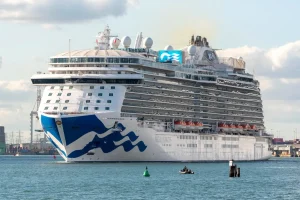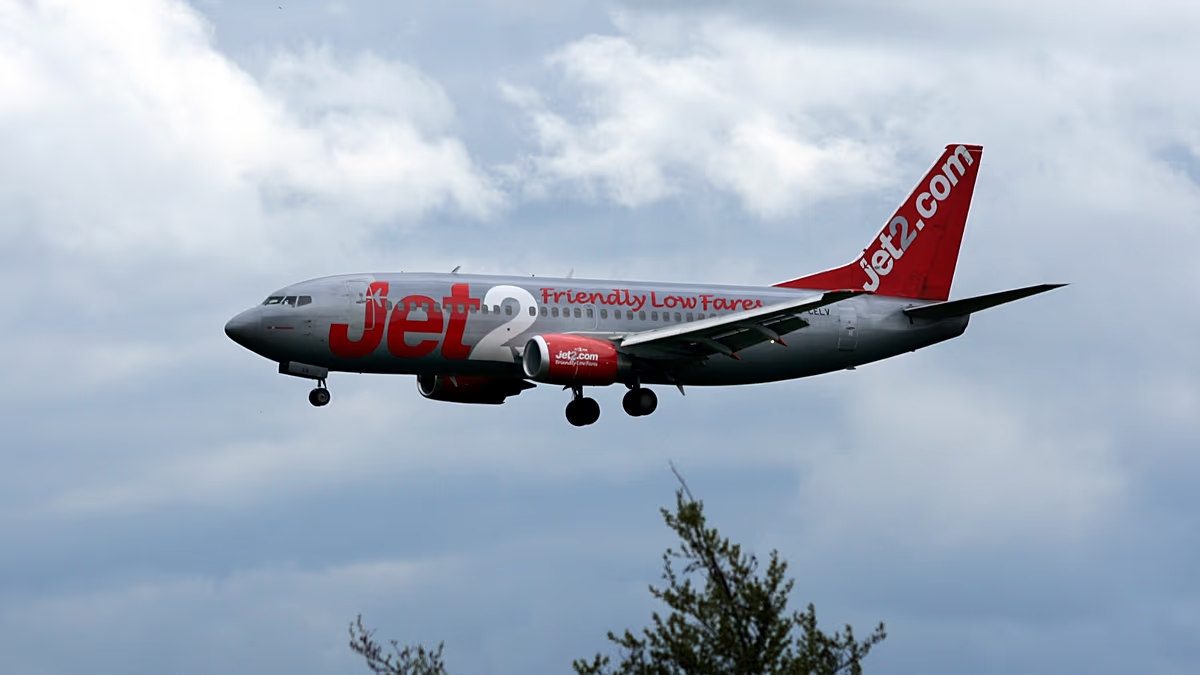Jet2 Rides the Viral Wave to Record Success Despite Rising Holiday Costs
In an impressive display of marketing prowess and business acumen, Jet2 has announced record-breaking passenger numbers amid its expansion plans, even as holiday costs continue to climb. The travel firm’s recently released Interim Results for the first half of 2025 highlight remarkable growth, largely coinciding with what became one of the year’s most recognizable advertising campaigns. The now-iconic “Nothing Beats a Jet2 holiday” tagline achieved a staggering 80 billion global views across nearly 12 million social media posts, while simultaneously reviving Jess Glynne’s 2015 hit “Hold My Hand.” This phenomenal reach begs the question: how much of Jet2’s success can be attributed to viral marketing, and what does this mean for the company’s future?
The campaign’s success story is particularly fascinating because it transcended traditional advertising to become a cultural phenomenon, albeit in ways the company likely never anticipated. The “instantly recognizable” slogan rapidly evolved into a self-parody, with travelers across social media platforms humorously juxtaposing the upbeat tagline against their own holiday mishaps. One viral example shows a woman battling to keep her tent from collapsing during a windstorm in Cornwall, while another with over 42 million likes features a man dramatically revealing a disappointingly tiny window view from his hotel room. Rather than damaging the brand, these user-generated parodies appear to have strengthened it. Tourism brand strategist Catherine Warrilow describes the campaign as “marketing gold,” noting its particular resonance with Gen Z travelers who were increasingly frustrated with budget airlines like Ryanair over strict luggage policies. Jet2 itself acknowledged in its financial report that this “unprecedented activity has resulted in increased marketing reach and widened our brand awareness amongst younger demographics,” though it stopped short of directly crediting the campaign for boosted sales figures.
The viral success wasn’t without its challenges, however. As Warrilow notes, brands embracing viral marketing must take the “rough as well as the smooth” when their content takes on a life of its own. This became particularly evident when the White House posted a controversial clip on social media showing people in handcuffs being escorted by Immigration and Customs Enforcement onto a flight, overlaid with the cheerful “nothing beats a Jet2 holiday” voiceover. The incident prompted backlash from both the ad’s original voice actor, Zoe Lister, who condemned what she called “abhorrent policies,” and Jess Glynne herself, who emphasized that her music stands for “love, unity and spreading positivity – never about division or hate.” Despite such potential PR crises, Warrilow suggests that “the positive has outweighed the potential PR crisis,” with the company’s remarkable growth serving as evidence.
The numbers certainly support this assessment. Jet2 welcomed an impressive 14.09 million passengers in the first half of 2025, representing an increase of 750,000 compared to the previous year. Group Revenue grew by five percent to approximately €6.06 billion, while seat capacity for Winter 2024/25 is currently 7.7 percent higher than the previous winter season. The company has already secured bookings for around 5.5 million seats. This success has enabled Jet2 to expand its operations, including securing slots for six aircraft at London Gatwick Airport for summer 2026 following the hub’s release of additional capacity. This strategic move could potentially bring in another 15 million customers, further cementing the company’s position as a major player in the travel industry.
Jet2 plc CEO Steve Heapy attributes this success to the company’s “flexible operating model” and its ability to adapt to evolving consumer behavior. Despite economic uncertainties leading to later booking patterns, Heapy notes that customers still prioritize “their well-earned holidays in the sun with a brand they can trust.” He believes that “the annual overseas holiday remains a cherished priority for many, often taking precedence over discretionary spending even in uncertain economic times.” This insight into consumer psychology has clearly informed the company’s strategy, allowing it to capitalize on travelers’ unwavering desire for reliable vacation experiences despite broader economic concerns.
While the viral campaign undoubtedly contributed to Jet2’s brand awareness, several other factors have played significant roles in its remarkable growth. The company launched new operating bases at Bournemouth and London Luton airports, accounting for four percent of its overall growth. Jet2 has also maintained competitive pricing, with the average cost of a Jet2holiday increasing by just three percent despite inflation, while actually reducing flight-only ticket yields per passenger sector by seven percent through promotional pricing initiatives. Additionally, the company’s myJet2 membership program has seen explosive growth of 62 percent over the past year, now exceeding 8.4 million subscribers who benefit from exclusive discounts on flights and package holidays. These strategic business decisions, combined with the unexpected windfall of viral marketing success, have positioned Jet2 for continued expansion in an increasingly competitive travel market, demonstrating how traditional business acumen and modern marketing approaches can work together to drive remarkable results.










